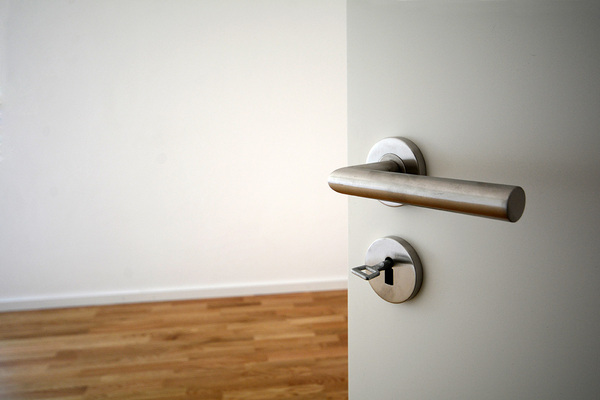You are viewing 1 of your 1 free articles

Jamie Ratcliff is executive director of people and partnerships at Network Homes
Why I hope the housing sector doesn’t turn its back on the office
Debate is raging in the housing sector about the future for office environments. Jamie Ratcliff is clear about which side he stands on
Debate has raged in the pages of Inside Housing and elsewhere on the merits of working from home versus in the office. When the current health crisis subsides, will we be a nation of permanent home workers or back to our office environments?
While each industry and business is different, the choice isn’t that binary for housing associations. Much of our work has to take place physically in the homes and communities in which we are invested.
We’re about to enter another national lockdown in England, but I think this is an important discussion to have for the longer term. I am clear on which side of the debate I stand. I massively miss working in person with my colleagues and partners and in our fantastic offices, where I’m much more productive. I am nonetheless able to see the benefits of flexible working.
At Network, we were advanced in our plans for flexible working long before lockdown hit. Microsoft Teams and the immortal lines of “Jamie, you’re on mute” were already well established parts of our working lives.
So well did our technology work that we found in early March when we trialled a whole organisation, ‘work from home’ day that the difference was literally imperceptible. This undoubtedly put us in a good place to continue providing first class services to our residents when lockdown hit. I cannot imagine what it would have been like if we had been stuck with access through portals, which seemed to struggle when even a handful of people were logging in at once!
These new tools have given us many more channels for communication. All our engagement with colleagues tells us that our executive team is more visible than it has ever been, as a result.
Yet the virtual intimacy of a ‘Teams coffee break’ is a poor substitute for the real thing. I’ve really enjoyed the regular executive leadership team Q&A sessions we’ve run for all colleagues on Teams Live and the virtual resident engagement sessions we’ve held. But these are more like broadcasts than personal interactions and they are poor at building rapport.
“Let’s not lose sight of the benefits that physical presence in the office brings: energy, collaboration and creativity”
Home working during the pandemic has been a different experience for different people and I’m proud of everyone’s efforts in keeping Network functioning and delivering services to residents during that time. I have colleagues who have said they would never want to work from home again and others who would prefer to work from home permanently.
Some of this is linked to the space they have at home – something that amplifies the importance of our mission as a provider of affordable homes. However, much is down to other caring responsibilities, personality and working style.
While there are tasks that require concentration and focus that some people may be able to complete better from home, what some may perceive as interruptions and distractions are often a fundamental part of the job and make an office environment healthy. After all, we are not an organisation of separate individuals.
So let’s not lose sight of the benefits that physical presence in the office brings: energy, collaboration and creativity.
Presence also brings significant benefits for learning and progression. Friends working in the legal and accountancy professions have relayed their concerns of how the development of junior staff has been harmed by a lack of contact and opportunity to observe. Unlike us these professions also track, to the quarter of an hour, their activity and overall it seems home-working has reduced productivity, with some tasks taking twice as long.
For us at Network, it’s simple. We want to remain a single coherent organisation. Many of our colleagues are not able to work from home, so we want to avoid two tiers: those who work from home and those who work from the office. Ultimately, as a community-based organisation, we want all colleagues to be clearly focused on the services we provide to residents.
We started to move back towards this throughout August and September when we asked everyone at Network to come into our offices two days a week. This was undoubtedly assisted by the fact we were welcoming people back to a fantastic new office in Wembley, which we’ve leased from our close partner Quintain – some people expressed their love for the new space and were visibly excited to see their colleagues again.
Some people understandably had concerns, which we listened to. For instance, we introduced a risk assessment process to put in place reasonable adjustments for colleagues who may be more susceptible to catching COVID-19.
We also put in place extensive safety measures of sanitation, one-way systems, social distancing and reduced capacity. Our offices remain safe and open for people who work more effectively there.
We will always follow government advice and ensure our workplaces are safe. This means we are unlikely to be able to accommodate everyone in the office for some time.
But when we move back to closer to normal, I expect that most colleagues will be based in our offices most of the time. This means we will be able to offer the best services for our residents and foster a collaborative and creative working environment, which I know we all value so much.
“Bringing people back into our offices safely isn’t just important for the organisation and the services that we provide to residents – I believe it’s a fundamental part of our commitment to place, local communities and economies”
There’s more that we can learn. We hope to develop much more sophisticated measures of productivity to make the best of remote working and maximise the known benefits of physical presence in the office.
Network has a long-term focus on place and quality, and I believe we have a moral duty to clearly demonstrate what that really means.
As we move beyond the current health emergency, bringing people back into our offices safely isn’t just important for the organisation and the services that we provide to residents – I believe it’s a fundamental part of our commitment to place, local communities and economies.
Most of our homes are in north-west London and east Hertfordshire and we are committed to building many more to meet housing need in those areas.
The achievements of our residents and our organisation are inherently linked to the success of these places. We should retain that focus.
Jamie Ratcliff, executive director of business performance and partnerships, Network Homes











